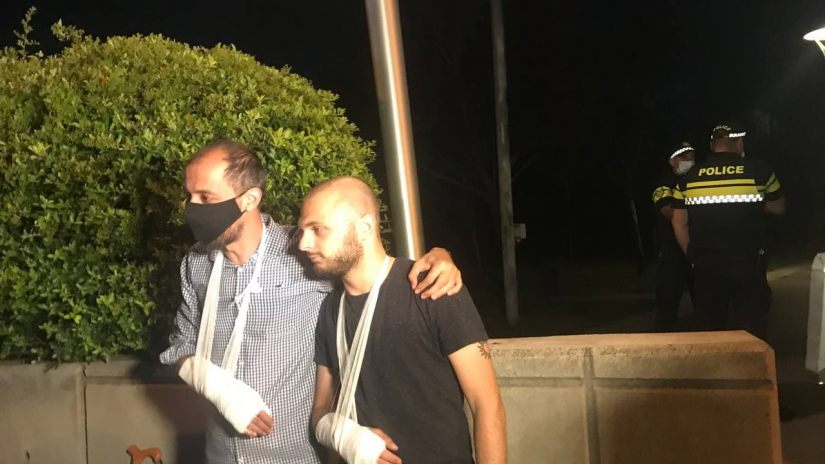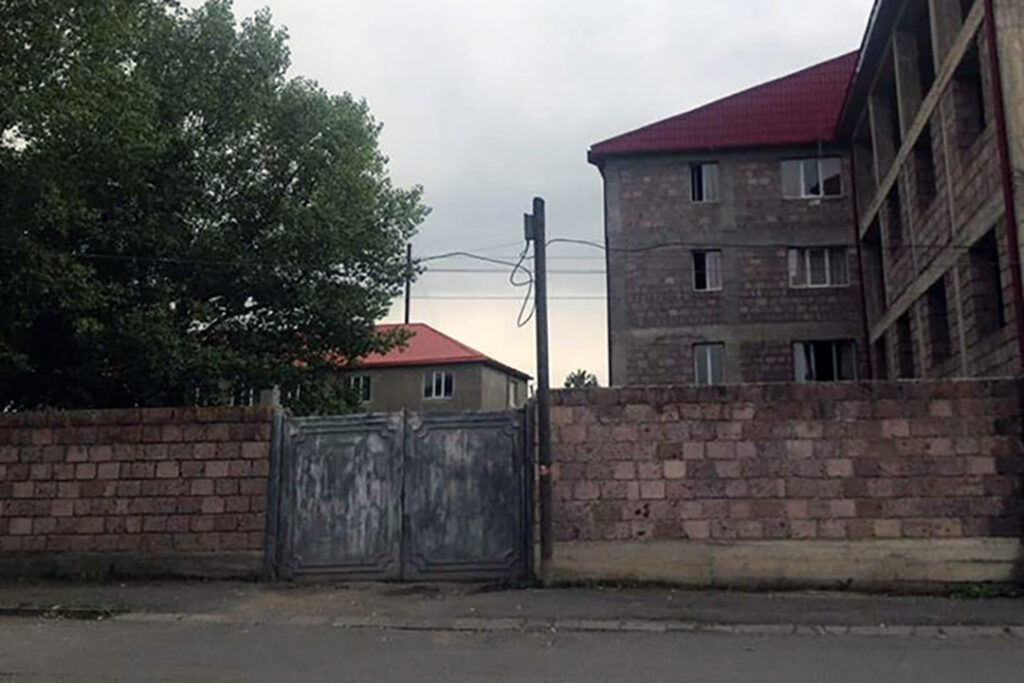An estimated 16 minors have been immediately slated for relocation after state monitoring representatives were allowed to enter the Georgian Orthodox Church-run Ninotsminda orphanage. The Georgian Public Defender remains barred from the orphanage.
On 4 June, the Georgian Agency for State Care and Assistance for the Victims of Human Trafficking said that that they have relocated six minors already and other ‘around ten’ were also set to leave the institution, after they were granted access to the school.
Fifty-seven children are housed at the orphanage, which is located in Ninotsminda, a town in the South of Georgia near the Armenian border.
A day earlier, police detained nine people during a protest titled ‘End Children’s Captivity!’ outside the Prosecutor’s office in Tbilisi.
Protesters demanded the investigation of four shelved criminal cases, including one alleged rape of a minor, at the Ninotsminda orphange. Metropolitan Spiridon Abuladze, the cleric who oversees the orphanage, has remained defiant, refusing to allow Public Defender Nino Lomjaria or her team to enter the orphanage grounds.
[Read more on OC Media: Child abuse allegations dog Georgian Church orphanage]
Police released five protesters shortly after their detention, including Shame! movement activists Giga Makarashvili, whose arm was broken during the detention, and Nika Parulava from Shetsvale (change!) group who also sustained an arm injury.

The protest that was co-organised by Droa (it's time!) political group leader Elene Khoshtaria, also demanded that the government shut down all large orphanages in Georgia, a proposition advocated by Nino Lomjaria and her predecessors, as well as child rights advocates in Georgia.
Apart from Khoshtaria and activist groups, the Georgian government has faced criticism for its inaction from the United National Movement, the country’s largest opposition party, as well as from the Lelo and European Georgia opposition parties.
Civil society organisations have been particularly vocal since the Interior Ministry confirmed on 3 June that since 2016 they had launched four probes into alleged child abuse at the orphange, including one case of alleged rape, but that all of them lacked ‘sufficient evidence’ to proceed with.
While the Chair of Georgia’s Human Rights parliamentary committee Mikheil Sarjveladze vowed the problem be solved soon, the Georgian Public Defender and her representatives still remain unable to access the orphanage.
Worrying reports
The State Care Agency confirmed on 4 June that they had already extracted one minor 10 days earlier who, according to them, complained about 'psychological violence' from one of the orphanage workers.
On 3 June, a 19-year-old man was quoted by RFE/RL's Georgian service Radio Tavisupleba claiming to have been beaten by orphanage workers, repeatedly injected with some kind of tranquiliser, and experiencing psychological abuse before he turned 15 and left the institution.
He also accused the school of hiding the fact that he was placed there, despite his birth mother looking for him with the hope of taking him into her care.
After her last visit to the orphanage in 2018, the Public Defender reported that minors were ‘almost completely isolated from the community’ and that they were ‘not aware whom they may apply to for the protection of their rights’.
Referring to religious boarding schools generally, the monitoring by the Public Defender identified ‘ear pulling, hair pulling, putting in the corner, temporary restriction on participation in religious rituals, and bowing’ as routine forms of punishment of minors.
An even earlier report by Ucha Nanuashvili, Lomjaria’s predecessor in 2015, said that food deprivation and forcing children to walk on their knees through a corridor in front of peers were also applied as forms of punishment.
‘The operation of religious boarding schools is… associated with a high risk of institutional violence, difficulties in identifying and responding to cases of neglect’, a 2019 special report on the child care system by the Georgian Public Defender reads.
Tbilisi-based rights group Partnership for Human Rights urged the authorities to vacate the whole orphanage as according to them, safeguarding minors from potential ill-treatment should not be dependent on their verbal consent in a potentially unsafe establishment. They have also filed a legal request for an interim measure to this effect.




 4 June 2021
4 June 2021



